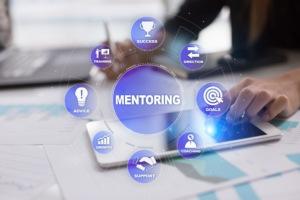 Corporate social responsibility (CSR) programs allow businesses to become a part of and give back to their communities whilst also establishing – and, indeed, living – their brand values. Whether CSR activities are part of a wider marketing program or run separately, they create opportunities for the company to connect with a wider audience, raise awareness of their brand, and support causes that people within the company care about.
Corporate social responsibility (CSR) programs allow businesses to become a part of and give back to their communities whilst also establishing – and, indeed, living – their brand values. Whether CSR activities are part of a wider marketing program or run separately, they create opportunities for the company to connect with a wider audience, raise awareness of their brand, and support causes that people within the company care about.
People increasingly want a job with purpose, and to work for companies that demonstrate strong ethics. CSR programs aren’t just a form of soft marketing, they’re also important for talent acquisition and staff retention.
Yet, many CSR programs accidentally hurt the causes they are trying to support. And because the damage is unlikely to be evident, nor discussed publicly, companies don’t address the problems that they are causing for their CSR partners. Here are five common ways that companies get CSR wrong.
1. A haphazard application process
CSR programs often rely on passionate staff to identify potential partners and develop a relationship with them. Often there’s no formal application process and agreements are negotiated through long exchanges of emails and phone calls, wasting everyone’s time and energy. Formal processes, where they exist, are often onerous and result in the applicant being ghosted.
Companies need to develop simple, open application processes with clear deadlines which are widely publicised within their communities so that opportunities are open to everyone. Much of the application process can be automated, so that the admin burden on CSR managers is reduced whilst applicants get a timely decision and notification.
2. Connections are with a person not the company
When the success of a CSR program is down to staff connections, problems arise when that member of staff leaves. Partner organisations suddenly find themselves hoping that someone else has picked up CSR responsibilities, and must then try to create a new relationship with someone who might never have heard of them and who probably isn’t anywhere near as enthusiastic about their project.
CSR relationships are often nurtured over the course of several years, and peremptorily dropping one can damage goodwill in the community. It’s a waste of the investment that your company has put into that relationship, and it creates unnecessary work as the new CSR manager will have to find and develop relationships with new organisations.
Creating a team of CSR managers who manage applications and partner communications using software, such as a customer relationship management platform, goes a long way towards mitigating key-person risk. As with any other supplier, your CSR partner’s relationship should not be managed by just one person.
3. Short-term thinking
Commitment-phobia does seem to be a common CSR problem, with companies repeating their decision-making process every year when renewal comes up. It’s a waste of everyone’s time, particularly when a relationship has already been established and the CSR partner has reliably delivered on their commitment.
Renewal decisions should be quick, easy and planned well in advance. Even better, companies should commit to longer term engagements so that the CSR partner can confidently plan their future activities, knowing what their budget is.
4. Byzantine invoicing systems
Three in every five SMEs face problems getting late invoices paid, according to Barclays. The problem is amplified for small non-profits or social enterprises, because they are often dependent on CSR funding for their survival and they don’t want to kick up a fuss in case they get dropped for being difficult.
Every big business should be raising purchase orders and paying invoices in a timely manner, but if they don’t, it’s something that a CSR manager can’t change. But a little thinking ahead can save a world of pain for your CSR partners. Making sure that you have all the information needed to enter an SME into your payment system, and staying on the case to ensure timely processing all go a long way to mitigating the problem.
5. Not picking the low-hanging fruit
The best CSR programs don’t just give money to their partners, they provide promotional support as well. Larger sponsoring companies tend to be more well endowed with followers on Twitter, newsletter subscribers, and internal comms channels. But companies don’t always bring this firepower to bear in support of their CSR partners. This is most perplexing. If you’re sponsoring an event or an education pack or a mentoring program, why would you not sing that from the rooftops so that your CSR partner benefits from your far larger reach?
This low-hanging fruit is often left to rot on the tree because it’s too complicated for the CSR manager to collaborate with the comms teams, or because the lead time for creating social media content is too long. This is where planning ahead comes in handy. The dates for Ada Lovelace Day, for example, are set for the next century. Planning ahead should not be a problem.
These are just five of the issues I’ve seen companies struggle with in my 17 years in the non-profit/social enterprise space. The vast majority of CSR managers are good people with good intentions, but a little bit more organisation and support from the wider business could make CSR programs more effective, more efficient and more successful.
If you would like help improving your CSR programs and processes, please email me: Suw@FindingAda.com. I have a wealth of knowledge to share with you!
 We are offering six months of free access to our Finding Ada Network mentoring program to women in STEM.
We are offering six months of free access to our Finding Ada Network mentoring program to women in STEM. Sarah Cruise specialises in the art and science of effective communication and her business, eloquential, represents the rattle bag of knowledge, skills and experience that she has collected over the years. Sarah combines research from well-founded and respected sources across many disciplines, with practitioners experience in the performing arts, and person-centred psychology and practices.
Sarah Cruise specialises in the art and science of effective communication and her business, eloquential, represents the rattle bag of knowledge, skills and experience that she has collected over the years. Sarah combines research from well-founded and respected sources across many disciplines, with practitioners experience in the performing arts, and person-centred psychology and practices.